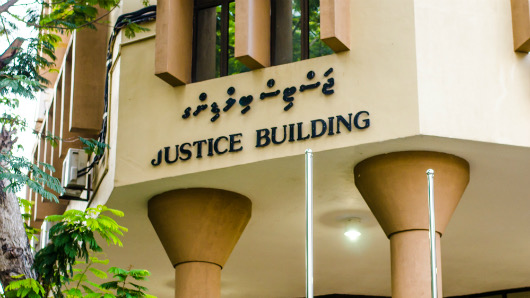 |
| Deputy Ambassador of Maldives to China, Mr. Sobah Rasheed. Photo: Twitter |
By: Sobah Rasheed
It is my firm opinion that President Ibrahim Mohamed Solih’s re-election is of paramount national interest at this juncture.
Over 70% of our GDP is from Tourism. We have a fragile economy. This has been witnessed during the pandemic more than ever. We all know Maldives graduated from a Leased Developed Country (LDC) to a Middle-income Country in 2011. But the 2020 pandemic turned our country into a No-income country just overnight. So, we must not forget that the country & our economy is grappling with the aftermath of the COVID-19 pandemic. To keep the economy and businesses afloat and sustain jobs president Solih’s government took difficult yet very bold decisions during the peak of the pandemic. Our country has got to deal with a large and growing fiscal deficit and debt which needs special attention.
My decision to support President Ibrahim Mohamed Solih is about ensuring continuity of the post-COVID national recovery project. It is about enabling president to complete the project through sound policies of his government that not only brought the light at the end of the tunnel but also achieved a great deal in a short span of time despite the odds.
So I firmly believe that in the best interest of the nation we must put aside political and ideological differences at this critical juncture and rally behind the president to empower him to complete this national project to the best possible degree over the next 5 years.
The country is in the right tract. Tourism is picking up. The economy is taking shape. We have earned the respect and trust of our bileteral partners and the international community. Foreign Investor confidence is all time high. So we must take this opportunity to get there!
I also believe re-election of president to a second term will turn a new page in our country’s democratic journey. It will be a major milestone in the consolidation of our democracy and our constitution. I optimistically believe that President’s re-election will also give an excellent opportunity for the opposition to become mature & credible, undertake their constitutional role and people’s democratic mandate providing oversight, checks & balance and accountability of the undertakings of the government.
So, I stay firm in my commitment to do my best and work towards re-electing President Ibrahim Mohamed Solih in 2023.
Disclaimer: Above is an exclusive opinion written to Adamington Online by Mr. Sobah Rasheed who is the Deputy Ambassador of Maldives to China. He is also known for launching the first Private Internet Service in Maldives under the brand name Raajje Online (ROL) offering unlimited Internet access at a fixed monthly fee breaking the monopoly held by State telecom company for ages. Views expressed by writers in this section are their own and do not reflect Adamington Online’s point-of-view.















